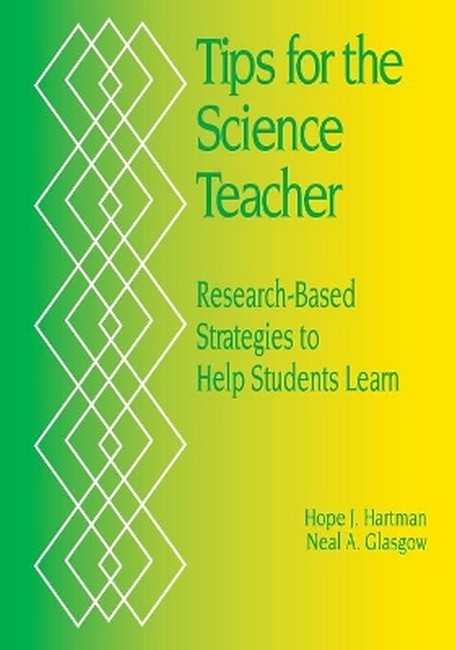Hope J. Hartman is Professor of Education and Coordinator of Social and Psychological Foundations at the City College of the City University of New York. Neal A. Glasgow's experience includes serving as a secondary school science and art teacher both in California and New York, as a university biotechnology teaching laboratory director and laboratory technician, and as an educational consultant and frequent speaker on many educational topics. He is the author or coauthor of ten books on educational topics: What Successful Schools Do to Involve Families: Fifty Research-Based Strategies for Teachers and Administrators (2008), What Successful Literacy Teachers Do: 70 Research-Based Strategies for Teachers, Reading Coaches, and Instructional Planners (2007), What Successful Teachers Do in Diverse Classrooms: 71 Research-Based Strategies for New and Veteran Teachers (2006); What Successful Teachers Do in Inclusive Classrooms: 60 Research-Based Strategies That Help Special Learners (2005); What Successful Mentors Do: 81 Researched-Based Strategies for New Teacher Induction, Training, and Support (2004); What Successful Teachers Do: 91 Research-Based Strategies for New and Veteran Teachers (2003); Tips for Science Teachers: Research-Based Strategies to Help Students Learn (2001); New Curriculum for New Times: A Guide to Student-Centered, Problem-Based Learning (1997); Doing Science: Innovative Curriculum Beyond the Textbook for the Life Sciences (1997); and Taking the Classroom to the Community: A Guidebook (1996).
Request Academic Copy
Please copy the ISBN for submitting review copy form
Description
"An authoritative, research-based, thoroughly up-to-date and readable review of the best available techniques for science instruction." -- Robert J. Sternberg "Teachers are starved for this kind of presentation of information. The format of the book is very appealing, with a unique blend of research, practical applications and the voices of experience addressing "pitfalls." Its specific tips are targeted, focused and clearly presented." -- Karen Charles "This book makes effective science teaching strategies readily available, truly at your fingertips. I really appreciated the organization, especially the 'what the research says' component." -- Leslie C. Gushwa "Principals and lead teachers at all levels will find this valuable information useful as they work with their colleagues in professional development." -- Raymond J. Dagenais, Ed.D. "It is refreshing to have valuable research synthesized into user-friendly tips. It should be mandatory for all science teachers, new and veteran." -- Dr. Margaret Just "This book is perfect for busy educators-its succinct sections make it a particularly useable reference tool." -- Jeanelle Bland "This straightforward volume is organized around several chapters, addressing key areas such as social aspects of science learning, technology in science teaching, and developing scientific thinking skills." "The authors clearly and concisely articulate each of the nearly 100 tips and support each one with a brief discussion of the related research, classroom applications, and possible pitfalls to implementation." -- CHOICE "The book's format is highly accessible and the material is clear and understandable. The authors have taken great care to include strategies that encourage meaningful science participation among a diverse community of learners." -- Horizon Research, Inc. "This straightforward volume is organized around seven chapters, addressing key areas such as social aspects of science learning, technology in science teaching, and developing scientific thinking skills. The authors clearly and concisely articulate each of the nearly 100 tips and support each one with a brief discussion of the related research, classroom applications, and possible pitfalls to implementation." -- D. Moss, University of Connecticut * CHOICE, 2002 *

